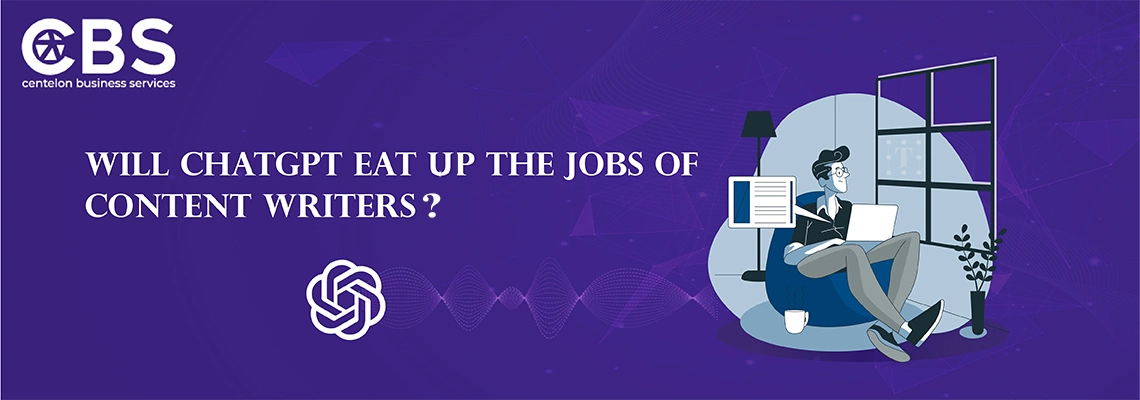ChatGPT is a sophisticated natural language processing model developed by OpenAI, using the GPT4 architecture. Its primary function is to generate human-like responses to a wide range of text-based prompts. With its ability to complete sentences, answer questions and generate text, ChatGPT is a versatile tool for various natural language processing tasks.
Content Creation with ChatGPT: The AI (Artificial Intelligence) Writing Assistant
An innovative AI writing assistant that has transformed the content creation process by generating high-quality content across a wide range of industries. Its advanced natural language processing capabilities aid idea generation by analyzing prompts and suggesting potential ideas. ChatGPT’s ability to produce engaging and relevant content for the target audience makes it an indispensable tool for content creators looking to enhance their workflow and elevate the quality of their work.
ChatGPT in the Spotlight: Examining the Pros and Cons
ChatGPT, the AI powered writing assistant, has gained popularity as a time-saving and efficient tool for content creation. However, like any other technology, it also has its pros and cons.
Pros:
- Saves time and effort: ChatGPT can generate high-quality content in a fraction of the time. This helps writers to focus on other tasks.
- Idea Generation: It can help in generating ideas, analyzing prompts or topics and suggesting potential ideas. This can help writers overcome writer’s block and create content relevant to the audience.
- Refinement of writing: Its advanced language processing capabilities can suggest improvements to the structure, tone, and style of the writing. This can help writers create more compelling and effective content.
- Coherent responses: ChatGPT can understand context and produce coherent responses that are relevant to the topic making it a valuable tool for content creation across a wide range of industries and applications.
Cons:
- Limited creativity: ChatGPT relies on machine learning algorithms that can produce content that may lack creativity or originality.
- Editing required: While ChatGPT can produce quality content, it may require significant editing and revision by humans to ensure accuracy and suitability for the intended audience.
- Not suitable for specialized content: It may not be suitable for highly technical or specialized content that requires subject matter ability.
- Maintenance and updates: ChatGPT’s algorithms may require frequent updates and maintenance to ensure the best performance.
- Ethical concerns: There are potential ethical concerns related to the use of AI-generated content such as plagiarism or a lack of transparency.
ChatGPT: Not a Replacement for Human Expertise
ChatGPT is designed to assist content writers in generating high-quality content quickly and efficiently. However, it is not intended to replace content writers entirely. While it can streamline the content creation process and provide suggestions for structure, tone and style, it may struggle with producing highly technical or specialized content that requires human expertise.
Content writers are still essential to ensure accuracy, creativity and subject matter expertise and ChatGPT can be a beneficial tool for content writers to create high-quality content more quickly, freeing them up to concentrate on challenging and creative jobs.
The Future of Content Writing: How Content Writers Can Stay Relevant in the ChatGPT Era
In the era of ChatGPT and other AI writing assistants, many content writers may feel like their jobs are at risk of becoming obsolete. However, by embracing and evolving with modern technologies, content writers can position themselves as valuable assets to businesses and organizations.
AI writing tools can generate content quickly and efficiently, they may not be able to match the creativity and domain-specific knowledge that human writers can bring to their work. A content writer can become relevant to the scenario by,
- Employing special niche skills – Focusing on a particular niche or industry, content writers can use their unique insights and knowledge to supply more valuable and efficient content.
- Honing SEO (Search Engine Optimization) and content strategy skills – AI writing tools can generate content but may not be able to optimize it for search engines or develop a comprehensive content strategy. Developing expertise in these areas can show the ability of content writers to create content that not only engages readers, but also drives traffic and conversions.
- Employing innovation and uniqueness – Investing in developing one’s creativity and originality, content writers can differentiate themselves and provide unique value to businesses and organizations.
- Embracing contemporary technologies – Staying up to date with new tools and techniques like ChatGPT, content writers can demonstrate their ability to adapt and evolve with the changing landscape of content creation.
The content writing profession has undoubtedly been affected by ChatGPT, however this does not mean that human content writers are becoming obsolete. Content writers can help the industry advance by being flexible and staying up to date with contemporary trends and technologies.
To strike a balance between human and AI-generated content, it is crucial for content writing companies to acknowledge the value of human creativity and collaborate with content creators. Content writers can prosper and continue to keep on top of trends with the help of these advice and techniques.
